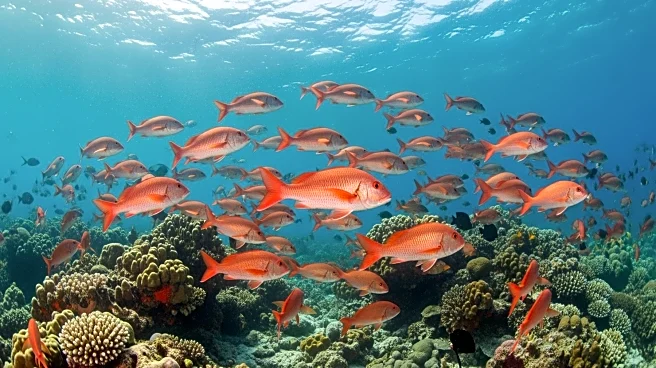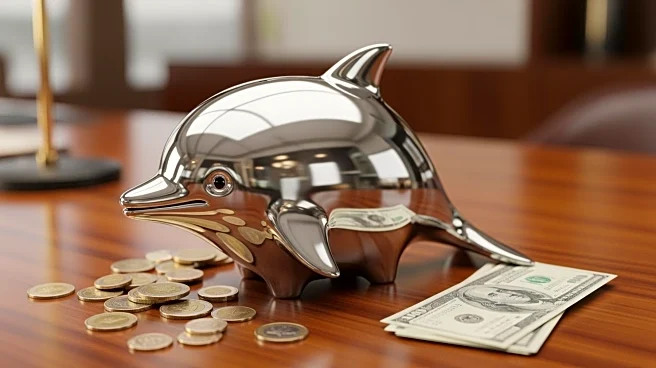What's Happening?
The Ministry of Agriculture, Fisheries and Mining in Jamaica has launched the Red Snapper Cage Culture Fin Fish Pilot Project to enhance food security and promote sustainability in the blue economy. This
initiative, supported by the United Nations Food and Agriculture Organization (FAO) and the National Fisheries Authority (NFA), is part of a regional effort under CARICOM. The project aims to increase local fish production and reduce reliance on imports, aligning with Jamaica's 'FACE of Food' program. The pilot is being conducted at the NFA's Bowden Bay Mariculture Research Facility in St Thomas, focusing on environmental benefits and the recovery of reef fisheries.
Why It's Important?
The Red Snapper Pilot Project is crucial for Jamaica's food security, as the country currently imports about 80% of its fishery products. By increasing local production, the initiative could reduce import dependency and support economic growth. The project also addresses environmental concerns, aiming to rejuvenate reef fisheries and promote sustainable marine practices. This aligns with global efforts to manage fish stocks sustainably, as highlighted by the FAO's assessment of marine fisheries. The initiative could improve livelihoods in coastal communities and expand Jamaica's aquaculture sector, contributing to a sustainable blue economy.
What's Next?
The project is over 70% complete, with the next phase involving the transfer of fingerlings into sea cages for growth monitoring. The initiative's success could lead to import substitution and potential export opportunities, enhancing Jamaica's position in the global fish market. The FAO and the Ministry plan to document best practices and share findings with CARICOM partners, fostering regional collaboration in sustainable aquaculture. Public-private partnerships will be crucial for scaling up the project and ensuring its long-term success.
Beyond the Headlines
The project highlights the importance of sustainable practices in the blue economy, addressing both food security and environmental conservation. It underscores the need for collaboration between international organizations, governments, and private sectors to achieve sustainable development goals. The initiative could serve as a model for other countries facing similar challenges in food security and marine resource management.










